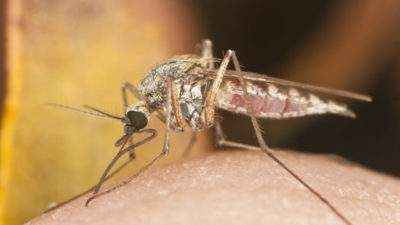
The World Health Organisation (WHO) in its report titled “Global Technical Strategy for Malaria, 2016-2030” to mark this year’s World Malaria Day in Geneva listed Nigeria among countries that are not ready to eliminate malaria. This assessment seems credible because the government agencies and NGOs that are saddled with the responsibility of combating this dreaded disease are doing so with levity and defective strategies.
The mosquito net distribution scheme and drug therapy as preventive and curative measures are flawed for obvious reasons. The mosquito net can only offer limited protection within the sleeping area and not in other locations in the house or in public places and as such unreliable as preventive and protective measures.
The drug therapy on the other hand, offers a cure for one infection only. Subsequent attacks which may be as many as 5-8 incidents in a year must also be treated. The drugs are expensive and one untreated attack could lead to cerebral malaria and death. In view of these obvious flaws, a more practical and effective strategy must be found to fight malaria in Nigeria. The success story of countries that focused on the elimination of mosquito colonies based on the common sense logic of “no mosquito, no malaria” should be explored.
The Maghreb countries in North Africa and countries in the Caribbean Islands have achieved remarkable successes in fighting malaria by eradicating mosquitoes by these three means viz: fumigation, larvicide and sterilisation. The first strategy is not new in Nigeria. In the early years of Nigeria’s independence, sanitary teams carried out routine fumigations in towns and villages to control and eradicate mosquitoes in their habitats. These operations achieved a high degree of success and incidents of malaria attacks were dramatically reduced.
The second method is through the introduction of a non-toxic larvicide, the Bacillus Thurengensis Israeliensis (BTI) into mosquito breeding grounds, such as gutters, sewage pits and stagnant pools. The BTI consumes the mosquito larvae, thus preventing it from developing further into the flying mosquito. Inevitably, the colony goes into extinction.
The third method involves the introduction of clinically sterilised male mosquitoes into the wild. When the sterile male mates, the unfertilised eggs are unable to develop into the larvae stage and so on, leading to the gradual depletion of the colony and eventual extinction.
The Nigerian agencies and Non Government Organisations (NGO) that are saddled with the heavy responsibility of combating malaria should consider these options which have been tested and proved to be effective. There are already insinuations in certain quarters that the agencies are not really serious about fighting malaria, but to perpetuate it, so that donor funds will keep flowing into the country and the agencies.
This mischievous speculation is probably out of frustration because the mortality rate which is put at about 300,000 deaths a year is still very high.
The World Health Organisation is a credible institution that would not protect any country or agency that is not living up to standard in this struggle against malaria. It is in this sense that the report of the organisation should be taken very seriously. Nigerian people hope and expect that the 2017 World Malaria Day will bring a positive report about Nigeria and not another remembrance day of hundreds of thousands that must have fallen victim to the malaria scourge.
GUARDIAN
END

Be the first to comment